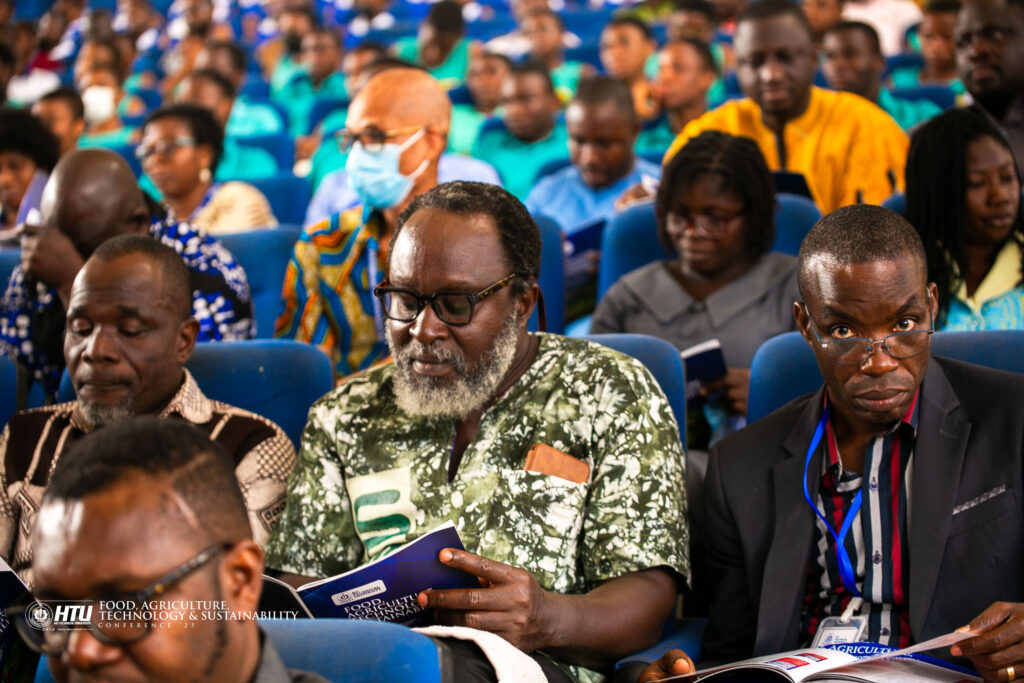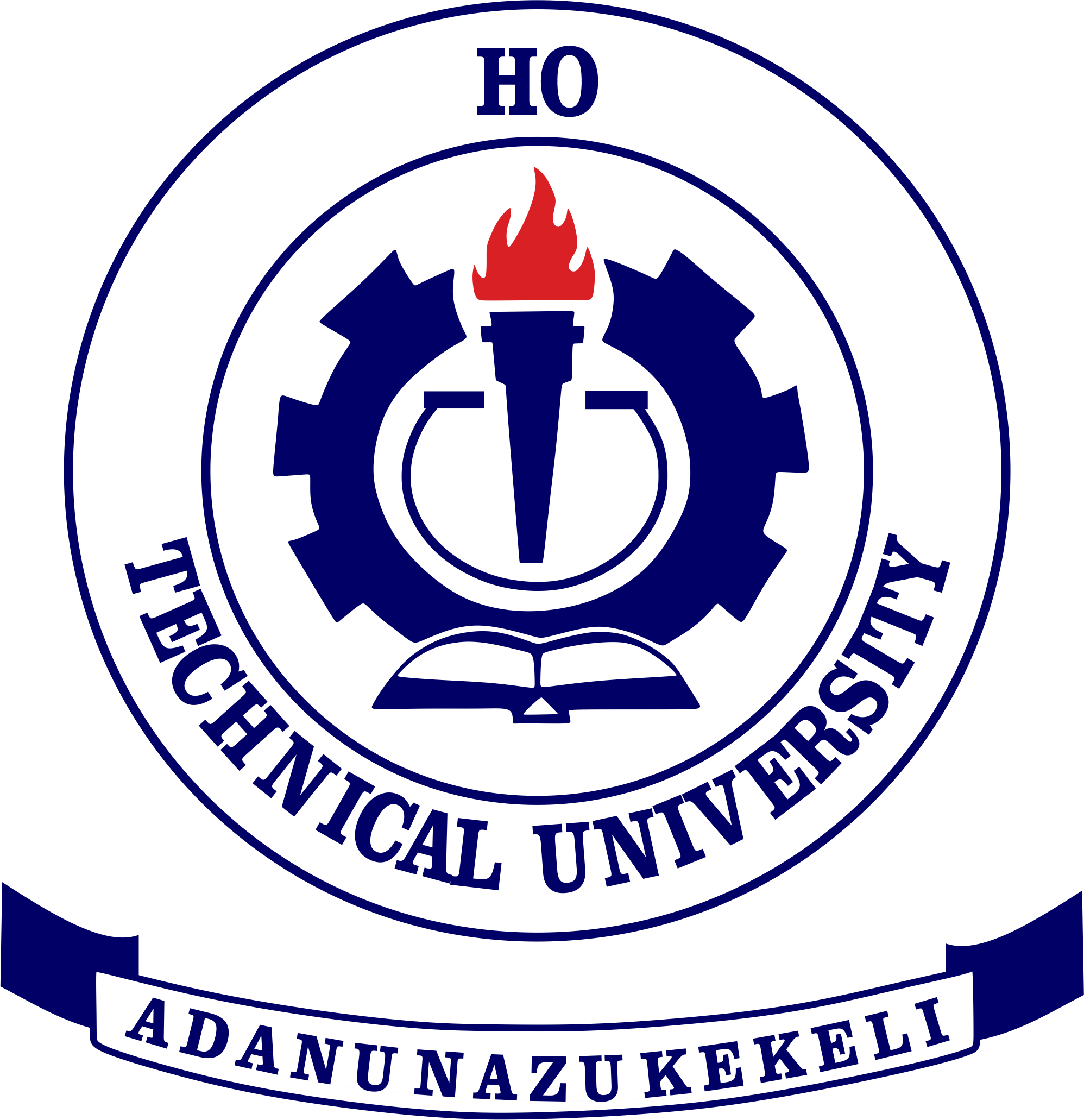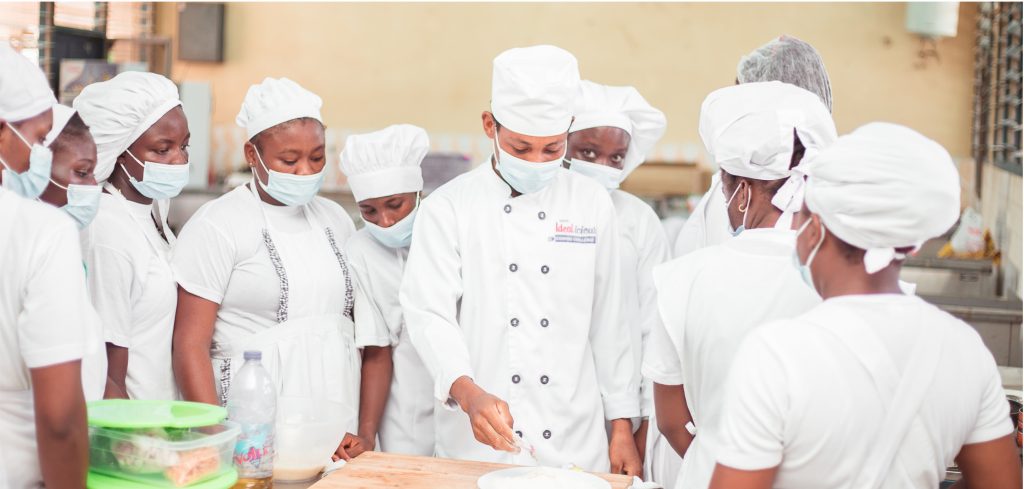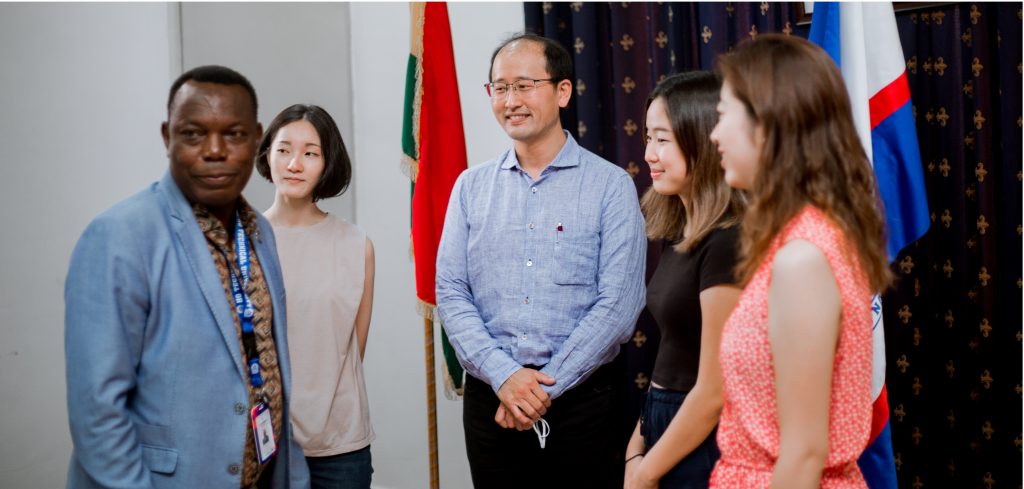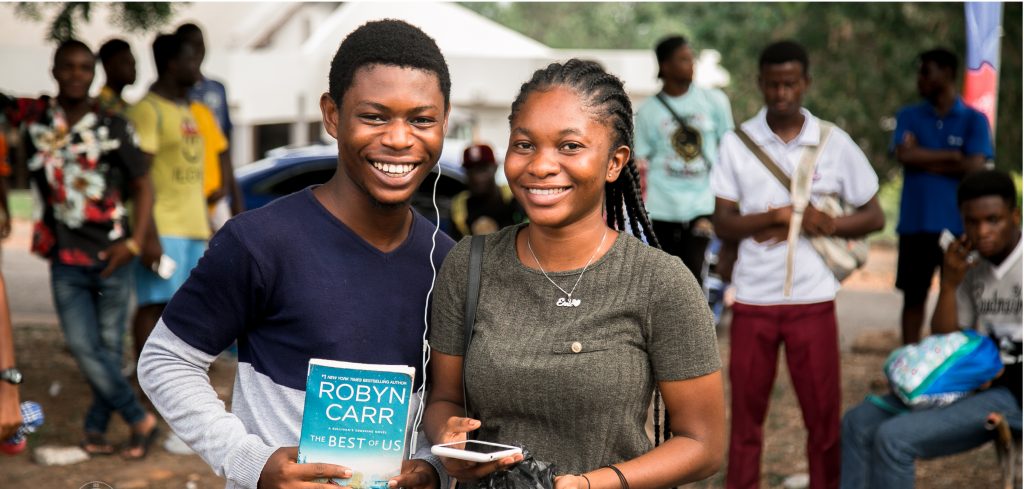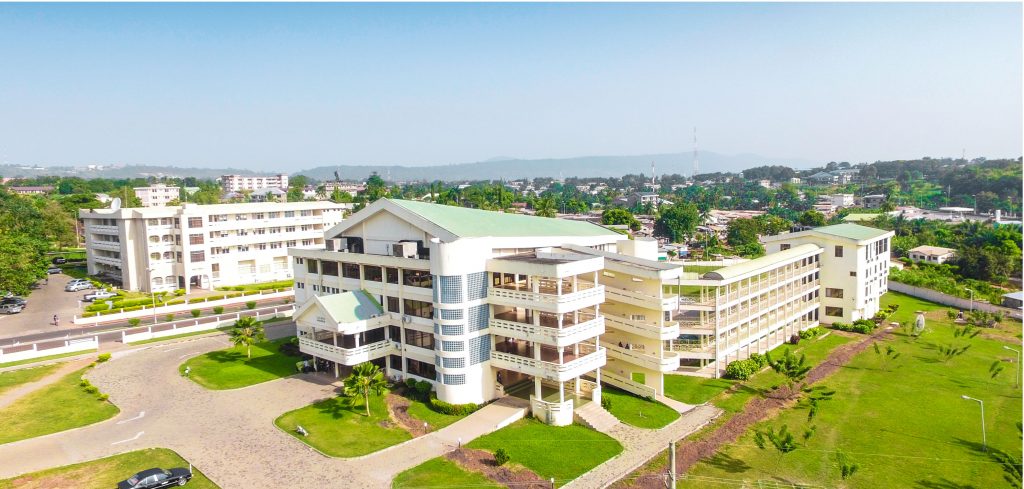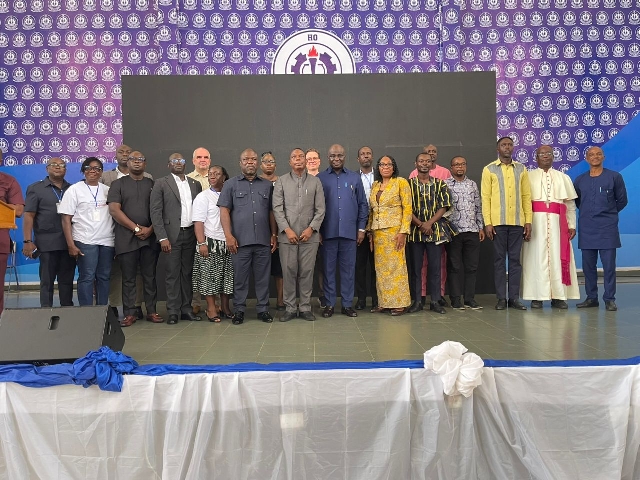Ho Technical University (HTU) has once again positioned itself at the forefront of national discourse on agriculture and sustainability as it opened the Food, Agriculture, Technology and Sustainability (FATAS) Conference at the G.M. Afeti Auditorium on Monday, November 17, 2025.
Held under the theme “Rethinking the Future of Food and its Allied Systems in an Era of Sustainability and Circularity,” the two‑day gathering brought together policymakers, academics, industry leaders, and civil society actors to deliberate on bold strategies for transforming Ghana’s food systems.
By convening this dialogue, HTU reaffirmed its role as a driver of innovation and applied research in Ghana and beyond. Vice-Chancellor Prof. Ben Q. Honyenuga, in his welcome address, highlighted the University’s pioneering breakthroughs — including reducing the gestation period of the Baobab plant to under three years — and its top rankings in sustainability and education.

He urged participants to let the conversations inspire practical action across laboratories, farms, offices, and boardrooms, stressing that HTU’s mandate is not only to educate but to lead in shaping solutions for national development.
Two distinguished keynote speakers opened the conference. Prof. Eric Yirenkyi Danquah, Professor of Plant Genetics at the University of Ghana, delivered a stirring address on “From Genes to Generations: Rethinking Food Systems for Sustainable Africa.” He underscored the urgent need for heavy investment in agricultural research to drive improved yields and productivity, warning that “nothing else can survive in an economy without agriculture.”
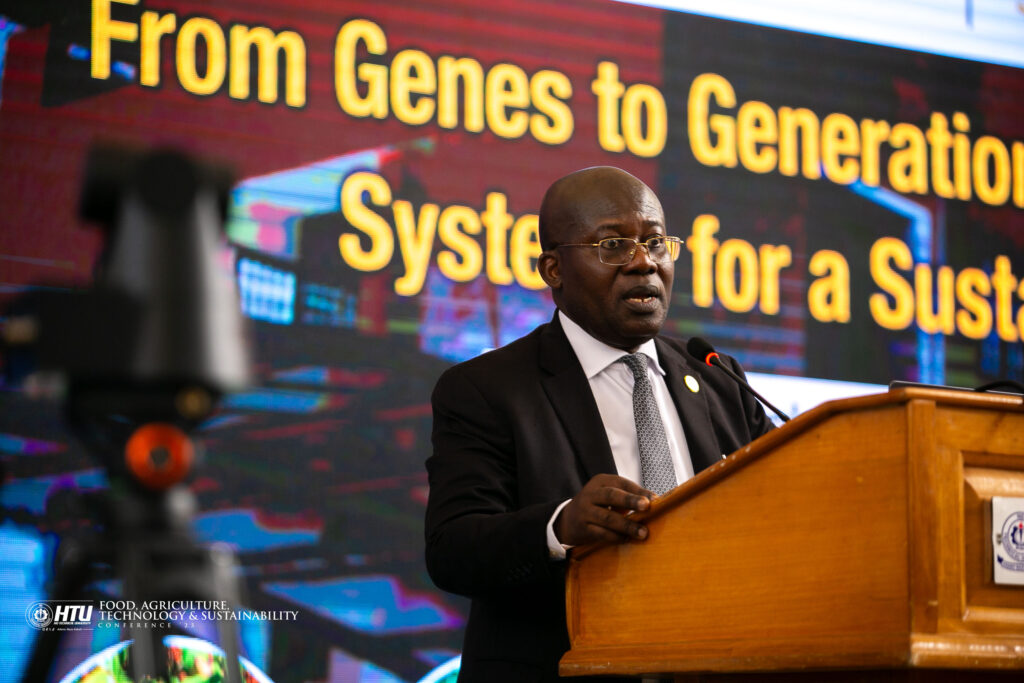
Prof. Danquah challenged policymakers to move beyond rhetoric and treat agriculture as the true backbone of Ghana’s economy. He commended government for establishing the National Research Fund but urged deliberate efforts to ensure research outputs are scaled into tangible, sustainable outcomes.
Highlighting cassava’s immense economic potential, he called on the youth to embrace agriculture not as a fallback option, but as a pathway to prosperity and national transformation.
Prof. (Mrs.) Ibok Nsa Oduro, Professor of Postharvest Technology at KNUST, followed with an equally compelling presentation on “The Future of Food: Innovations for Sustainable and Resilient Food Systems.” She emphasized that the future of Ghana’s food security lies not only in production but in innovation and value addition. Prof. Oduro urged stakeholders to rethink how indigenous crops are processed, packaged, and preserved, stressing that “a nation that neglects its indigenous foods risks losing both heritage and resilience.”
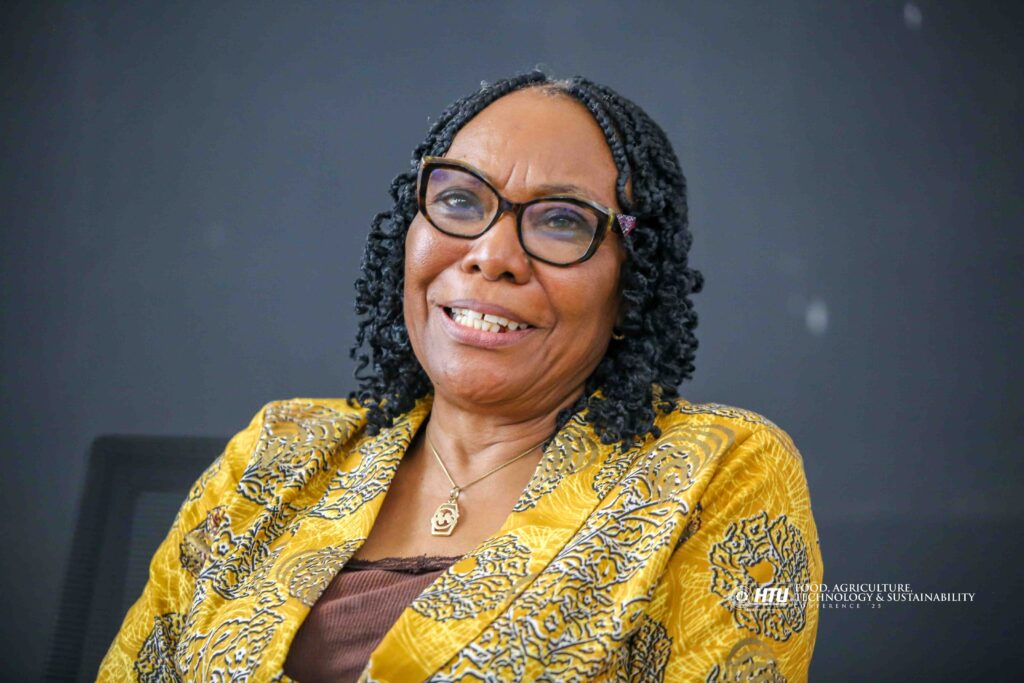
She called for urgent action to reduce postharvest losses, arguing that every wasted harvest is a lost opportunity for nutrition, income, and sustainability. Her appeal placed indigenous foods at the centre of the conversation, challenging participants to see them not as relics of tradition but as vital assets for modern, resilient food systems.
The Minister for Food and Agriculture, Hon. Eric Opoku, who served as Guest of Honour, noted that the conference perfectly aligns with government’s ongoing initiatives, such as the Feedback Ghana programme to transform the agriculture sector. He explained that with youth unemployment on the rise, agriculture provides limitless opportunities for job creation and prosperity.
The Minister stressed that transportation, rather than production, is a key driver of food inflation, and announced plans to construct road networks linking farming communities to markets. He encouraged secondary schools to establish farms and universities to translate their research into practical farming ventures.
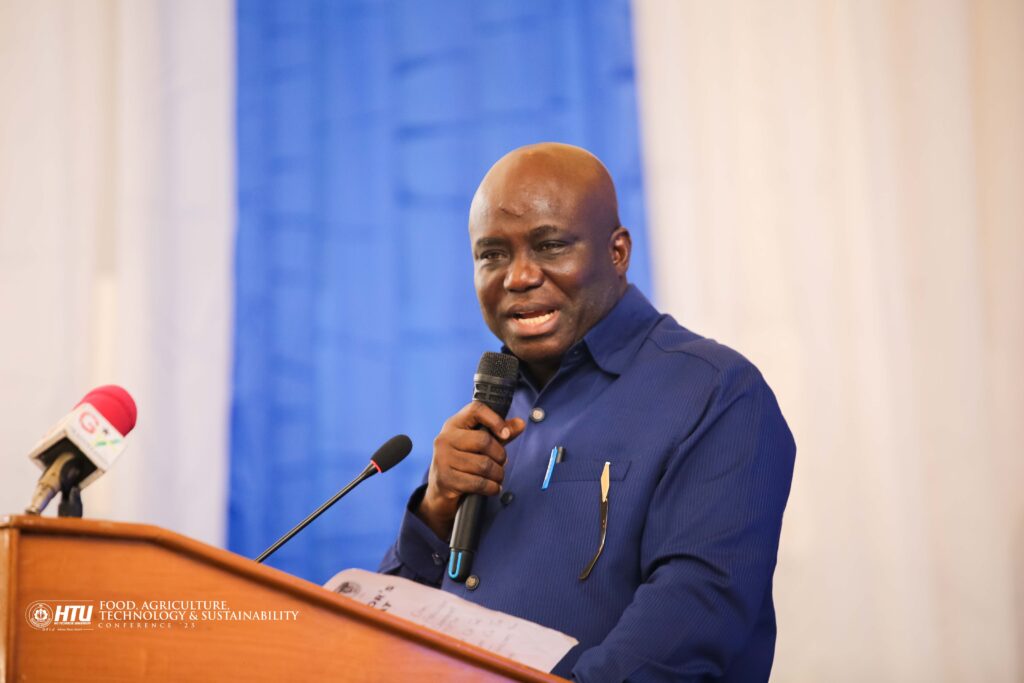
The Minister further announced that at this year’s National Farmers Day, awards will be presented to the best institutions in agriculture — from primary schools through to universities — as well as churches, to promote institutional involvement in farming.
He commended HTU for its pioneering Baobab research and invited the University to showcase its work at the Farmers Day Research Exhibition in Ho.
The event featured a panel discussion led by Prof. Eli Atatsi and drew participation from across Ghana and beyond. With its rich blend of insights, innovation, and collaboration, the FATAS Conference sets the tone for bold, inclusive, and sustainable transformation of Ghana’s food systems.

Present during the opening ceremony were several dignitaries, including the Volta Regional Minister, Hon. James Gunu; Ho Municipal Chief Executive, Hon. Stephen Adom; and the Catholic Bishop of Ho, Most Rev. Emmanuel Kofi Fianu, SVD. Also in attendance were officials from stakeholder agencies, institutions, and development partners, underscoring the broad-based support for the conference.
